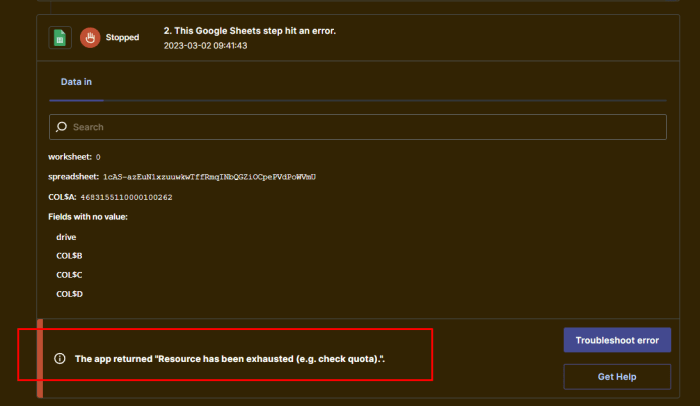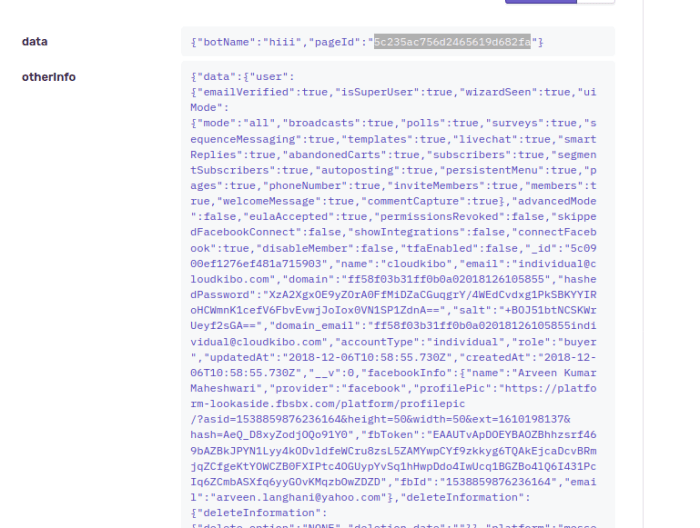Hbo max new harry potter series j k rowling – HBO Max’s new Harry Potter series, with J.K. Rowling’s involvement, has sparked a whirlwind of reactions. The announcement ignited a firestorm of debate, pitting nostalgic fans against those wary of Rowling’s controversial public statements. Will this series recapture the magic of the original books, or will it be overshadowed by the author’s past controversies? The potential for both phenomenal success and spectacular failure hangs heavy in the air, making this project one of the most anticipated—and potentially divisive—in recent television history.
This new series presents a unique opportunity to revisit the beloved wizarding world while also exploring uncharted narrative territories. HBO Max’s platform allows for a mature and potentially darker exploration of the themes and characters, a departure from the more family-friendly adaptations seen before. However, the challenge lies in balancing faithfulness to the source material with the need to create a compelling narrative for a new generation of viewers, all while navigating the complex legacy of its creator.
The Announcement & Initial Reaction

Source: insided.com
The announcement of a new Harry Potter series on HBO Max sent ripples—and frankly, tidal waves—across the internet. The news, unsurprisingly, ignited a firestorm of reactions, a complex mix of fervent excitement and cautious apprehension. This wasn’t just another TV adaptation; it was a return to a beloved world, a world inextricably linked to a highly controversial author.
The multifaceted nature of the response stemmed directly from J.K. Rowling’s continued involvement. While many fans remain deeply attached to the books and films, her public statements on transgender issues have alienated a significant portion of her former fanbase. This created a situation where the announcement was simultaneously highly anticipated and deeply divisive, prompting a robust debate on social media and beyond.
Dissemination of the News and its Impact
The news broke via various channels, maximizing its reach and amplifying the initial reactions. HBO Max’s official social media accounts, major entertainment news websites like Variety and The Hollywood Reporter, and numerous fan blogs and forums all contributed to the rapid spread of the information. The speed and scale of dissemination ensured the news saturated the internet almost instantaneously, creating a sense of immediate collective engagement and sparking countless discussions across different online communities. This widespread coverage, across both traditional and social media, contributed to the intensity of the initial response.
Social Media Sentiment Analysis
The following table provides a simplified representation of the initial sentiment expressed on social media platforms regarding the new Harry Potter series. It’s important to note that these are broad generalizations based on observable trends and not a precise, scientific measurement. The actual distribution of sentiment is likely far more nuanced.
| Platform | Positive | Negative | Neutral |
|---|---|---|---|
| Excited fans expressing anticipation for a new adaptation, focusing on potential storylines and casting. | Criticism focused on Rowling’s involvement and concerns about the series potentially perpetuating harmful views. Boycott calls were also prominent. | Users expressing cautious optimism or simply acknowledging the news without strong positive or negative opinions. | |
| Similar to Twitter, positive sentiment revolved around nostalgia and the potential for a high-quality adaptation. Fan groups showed significant engagement. | Similar to Twitter, negative reactions centered on Rowling’s views and concerns over representation within the series. Discussions often devolved into heated debates. | Many comments expressed a wait-and-see attitude, with users highlighting the need for further details before forming a definitive opinion. | |
| Visual content dominated, with many users sharing fan art and expressing excitement through image-based posts. | Similar to other platforms, negative sentiment often took the form of critical comments and reposts of articles highlighting Rowling’s controversial statements. | Many users shared the news passively, without explicitly expressing a strong opinion either way. | |
| Other Forums/Blogs | Detailed discussions on potential plot lines, character arcs, and casting choices dominated positive responses. | Concerns regarding the ethical implications of supporting Rowling’s work, coupled with debates about the importance of separating the art from the artist, were prominent. | A range of opinions, reflecting the diversity of views within the fanbase, were expressed. |
Potential Storylines & Adaptations

Source: githubusercontent.com
So, HBO Max’s new Harry Potter series with J.K. Rowling at the helm is sparking a lot of chatter, right? It’s got everyone buzzing, much like the innovative advancements in healthcare, such as the groundbreaking work with proximie remote surgery NHS is doing. Imagine that level of technological leap applied to the magical world – now that’s a spin-off I’d watch! The Harry Potter series, however, will definitely be a hot topic for years to come.
The prospect of a new Harry Potter series on HBO Max presents a thrilling opportunity to revisit the beloved wizarding world, but also a significant challenge. The existing books are already iconic, and any adaptation needs to respect that legacy while simultaneously offering something fresh and engaging for a new generation, and perhaps, a more mature audience than the original films catered to. The key lies in finding untapped narratives and reimagining familiar stories through a new lens.
Proposed Storylines for the Harry Potter Series
Three potential storylines could offer compelling narratives for a new series. First, a deeper exploration of the Marauders’ era could delve into the complex friendships and rivalries that shaped James, Sirius, Remus, and Peter, showcasing their youthful adventures and the events leading up to their involvement in the First Wizarding War. Secondly, a series focusing on the rise of Grindelwald could provide a captivating prequel, detailing his early life, his ideological development, and his conflict with Dumbledore, exploring the nuances of their complex relationship. Finally, a post-Hogwarts series following Harry, Ron, and Hermione as they navigate their careers in the Ministry of Magic, facing new challenges and threats, would offer a mature and timely perspective on the consequences of their actions and the ongoing fight for justice.
Challenges and Opportunities of Adaptation
Adapting the existing books to a television format presents both opportunities and significant hurdles. The richness and depth of the books will require careful consideration to avoid sacrificing crucial plot points or character development. However, the extended format of a television series allows for a more nuanced exploration of side characters and subplots, adding depth and complexity to the narrative that was necessarily absent in the films. Furthermore, the visual medium of television provides an opportunity to expand on the magical world, showcasing locations and creatures in greater detail. The challenge lies in balancing faithfulness to the source material with the creative liberties necessary for a successful adaptation.
Adapting the Harry Potter Universe for a Mature Audience
Adapting the Harry Potter universe for a mature audience requires a shift in focus and tone. While maintaining the core themes of friendship, love, and courage, the series could explore more complex themes such as political corruption, societal injustice, and the psychological consequences of trauma. The series could delve into the darker aspects of the wizarding world, exploring the morally grey areas and ambiguous characters. Consider the success of shows like *Game of Thrones*, which successfully blended fantasy elements with mature themes and complex characters. A similar approach, focusing on intricate character arcs and morally challenging situations, could make the Harry Potter series resonate with a more mature audience while remaining true to the spirit of the original stories.
Visual Representation of a Key Scene
Consider a scene from the proposed Marauder’s-era series. The scene depicts a clandestine meeting between James, Sirius, Remus, and Peter in a hidden compartment within the Shrieking Shack during a full moon. The lighting is dim and ethereal, illuminated primarily by the flickering flames of a single candle. The shack’s dilapidated interior is vividly rendered, emphasizing the decay and the inherent danger. Remus, transformed into a werewolf, is chained in the center of the room, his pained struggle palpable. The other three Marauders stand around him, their faces etched with concern and a mix of fear and determination. Their youthful faces, marked by the weight of their secret and the impending danger, are illuminated by the candlelight, highlighting the emotional intensity of the moment. The atmosphere is heavy with unspoken tension, creating a stark contrast between their youthful rebellion and the grim reality of their situation.
Casting & Production Aspects: Hbo Max New Harry Potter Series J K Rowling
Bringing the magical world of Harry Potter back to life on screen requires meticulous planning and a stellar cast. The success of this HBO Max series hinges not only on a faithful adaptation but also on the creative choices made during casting and production. Finding actors who embody the spirit of the beloved characters while also appealing to a modern audience presents a unique set of challenges.
Potential Cast Choices
Casting the main trio—Harry, Ron, and Hermione—is paramount. For Harry Potter, Noah Jupe possesses the right blend of youthful charm and underlying intensity. His performance in films like “A Quiet Place” demonstrates his ability to convey vulnerability and strength. For Ron Weasley, Jacob Elordi could bring a charismatic yet grounded portrayal, drawing on his experience in “Euphoria” to capture Ron’s loyalty and humor. Finally, Millie Bobby Brown, known for her complex role in “Stranger Things,” could embody Hermione’s intelligence and fierce spirit. Supporting characters would need equally thoughtful consideration; a diverse range of talented actors could breathe new life into familiar roles like Draco Malfoy, Snape, and Dumbledore, ensuring a nuanced and compelling ensemble. The casting process needs to prioritize not just acting ability but also the actor’s understanding and connection to the source material.
Challenges of Diverse Casting
Casting a diverse cast while staying true to J.K. Rowling’s original vision requires careful navigation. While the books lack explicit descriptions for many characters, the established fan perception of these characters presents a challenge. The production team must find a balance between reflecting the modern world’s diversity and maintaining the essence of the original characters. One approach could involve reimagining some character backgrounds or relationships without altering the core narrative. The key is to ensure that the diversity is organic and enhances the story, rather than feeling forced or tokenistic. Successful examples of diverse casting in fantasy adaptations, like the recent “Lord of the Rings: The Rings of Power” series, can serve as a benchmark for navigating this complex process. It’s crucial to avoid whitewashing or stereotypical portrayals and to focus on casting actors who can authentically portray their characters, regardless of race or ethnicity.
Production Locations
Replicating the atmosphere of Hogwarts and the surrounding areas is crucial. While the original films extensively used studio sets, leveraging real-world locations can enhance authenticity. The rolling hills and ancient castles of Scotland could serve as ideal locations for exterior shots of Hogwarts and the surrounding countryside. The gothic architecture of Oxford and Cambridge universities could provide suitable backdrops for various scenes within Hogwarts. Furthermore, locations in England, such as the Lake District, could effectively portray the magical landscapes surrounding Hogwarts. Careful consideration of lighting, set design, and special effects would be crucial to create a cohesive visual experience that remains true to the spirit of the books while also showcasing the potential of modern filmmaking technology. The production team should aim for a balance between utilizing real-world locations to enhance realism and utilizing studio sets for more controlled and fantastical elements.
Hypothetical Production Schedule
A realistic production schedule would span several years. Pre-production (12-18 months) would involve securing locations, casting, script development, and set construction. Filming (18-24 months), potentially spread across multiple seasons to accommodate the scope of the story, would follow. Post-production (12-18 months) would encompass editing, visual effects, sound design, and music composition. This timeline assumes a multi-season series, allowing for a detailed and immersive adaptation. The production team should adopt a phased approach, focusing on completing one season before commencing the next, ensuring quality control and efficient resource allocation. Delays should be anticipated and contingency plans implemented to account for unforeseen circumstances. Regular progress reviews and effective communication between departments would be essential for maintaining the project’s momentum and meeting deadlines.
Marketing & Fan Engagement
The success of the new Harry Potter HBO Max series hinges not just on a compelling script and stellar cast, but also on a robust and multifaceted marketing strategy that resonates with both die-hard fans and a new generation of viewers. This requires a multi-pronged approach, utilizing various media channels and engaging directly with online communities to cultivate excitement and anticipation.
A successful campaign needs to tap into the existing fervor surrounding the Harry Potter universe while simultaneously attracting new audiences who may be unfamiliar with the books or films. This involves crafting messaging that appeals to different age groups and interests, ensuring broad reach and impact. The campaign must also leverage the power of social media to foster a sense of community and build anticipation organically.
Targeting Different Demographics
The marketing strategy must cater to a broad demographic, encompassing existing fans who’ve grown up with the franchise and new audiences discovering the magical world for the first time. For long-time fans, nostalgia is key. Marketing materials could feature iconic imagery, callbacks to beloved characters, and behind-the-scenes glimpses of the production. For younger viewers, the focus should be on the series’ fresh take on the story, highlighting the new cast, exciting storylines, and visually appealing aspects. Consider targeted advertising campaigns on platforms like YouTube, Instagram, and TikTok, tailoring content to specific age groups and interests. For example, shorter, visually-driven clips on TikTok, longer, more detailed featurettes on YouTube, and aesthetically pleasing images on Instagram.
Engaging the Harry Potter Fanbase and Attracting New Viewers
Engaging the existing fanbase requires more than just advertising; it necessitates genuine interaction. This can be achieved through interactive online events, Q&A sessions with the cast and crew, exclusive behind-the-scenes content released on social media, and contests and giveaways that reward engagement. Attracting new viewers requires showcasing the series’ unique selling points – perhaps a fresh perspective on familiar characters, a new storyline, or a visually stunning adaptation. Partnering with influencers and YouTubers who have a significant following within the fantasy genre could also prove highly effective. Think of collaborations with established Harry Potter fan channels or even broader fantasy-focused content creators to reach a wider audience.
The Importance of Social Media and Online Communities
Social media and online communities are paramount to building hype and generating organic buzz. A dedicated social media presence is crucial, utilizing platforms like Twitter, Instagram, Facebook, and TikTok to share teasers, trailers, behind-the-scenes content, and engage directly with fans. Active participation in relevant online communities, such as Reddit’s r/harrypotter, is vital to fostering a sense of community and addressing fan questions and concerns. Utilizing interactive features like polls, Q&As, and live streams can encourage participation and strengthen the connection with viewers. The key is to create a two-way conversation, listening to fan feedback and incorporating it into the marketing strategy.
Sample Social Media Post
“The magic is back. ✨ Get ready to return to Hogwarts with the all-new Harry Potter series, streaming soon on HBO Max. #HarryPotterHBO #ReturnToHogwarts #MagicIsBack”
This post is accompanied by a captivating image – perhaps a stylized shot of Hogwarts at night, or a close-up of a familiar character’s wand. The hashtags ensure wider reach and searchability. This is just one example; variations would be used depending on the platform and target audience. The overall tone should be exciting, nostalgic, and inclusive, inviting both old and new fans to join the journey.
Impact & Legacy

Source: githubusercontent.com
The new HBO Max Harry Potter series holds the potential to significantly reshape the franchise’s landscape, impacting everything from its cultural relevance to its financial success. Its success hinges not only on delivering a high-quality adaptation but also on its ability to innovate and engage with a modern audience while remaining true to the spirit of the original books. This series has the opportunity to solidify the Harry Potter universe as a cornerstone of popular culture for another generation, or conversely, to risk diluting the established magic.
The series’ impact will be largely determined by its comparison to previous adaptations. While the films remain incredibly popular, they also faced criticism for omitting key plot points and altering character arcs. The “Fantastic Beasts” series, while visually stunning, struggled to capture the same level of critical and commercial success. This new series has the chance to learn from the successes and failures of its predecessors, offering a more faithful and nuanced adaptation of the source material, potentially appealing to both longtime fans and new viewers alike. Its success will be measured against these prior attempts, establishing a new benchmark for future adaptations of the magical world.
The Expansion of Harry Potter Lore, Hbo max new harry potter series j k rowling
This new series offers a unique opportunity to expand the already rich lore of the Harry Potter universe. Unlike the films, which were constrained by runtime, a television series allows for a deeper exploration of supporting characters, unexplored magical creatures, and under-developed storylines. For instance, the series could delve into the history of specific magical objects, such as the Elder Wand, providing backstory and context that enriches the overall narrative. Similarly, the series could explore previously unseen aspects of the wizarding world, such as the intricacies of different magical traditions or the political landscape of the Ministry of Magic, adding layers of complexity and intrigue. Think of the depth Game of Thrones added to its world-building – this series could achieve a similar level of detail and richness.
Legacy and the Passing of Time
The series could powerfully explore themes of legacy and the passage of time, both on a personal and societal level. Focusing on a new generation of witches and wizards allows for a direct examination of how the legacy of Harry Potter and his generation shapes the future. The series could showcase how the choices made by previous generations impact the present, mirroring real-world societal changes and intergenerational conflicts. For example, the series could explore the lingering effects of the Second Wizarding War, examining how prejudice and trauma continue to affect society decades later, much like the ongoing impact of historical events like World War II continues to shape the modern world. This exploration of lasting consequences adds depth and relevance to the story, connecting the magical world to real-world issues.
Outcome Summary
Ultimately, the success of HBO Max’s Harry Potter series will hinge on its ability to navigate the delicate balance between nostalgia and innovation. The series has the potential to redefine the franchise for a new generation while simultaneously engaging the loyal fanbase. However, the shadow of J.K. Rowling’s controversial past looms large, posing a significant challenge to the project’s reception. Only time will tell if this ambitious undertaking can conjure the magic needed to overcome its considerable hurdles and become a truly captivating television event.


